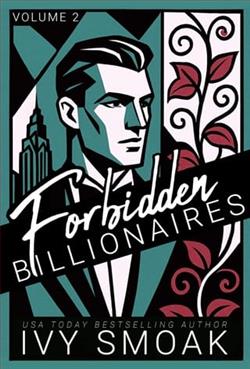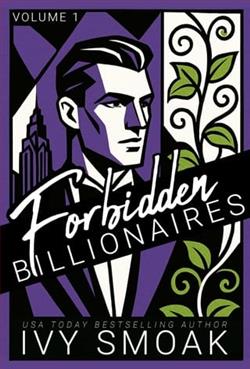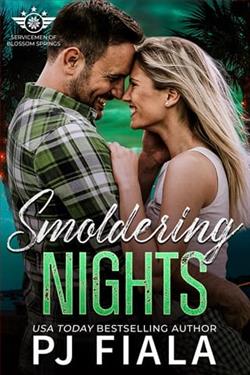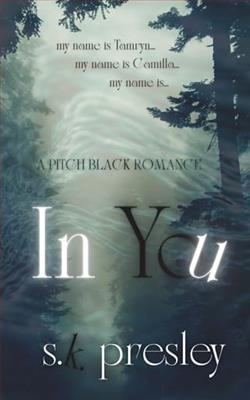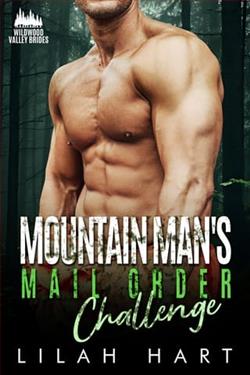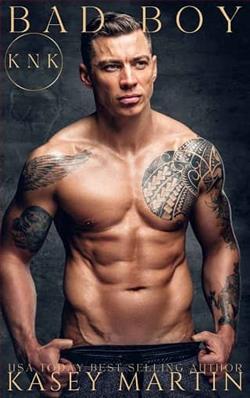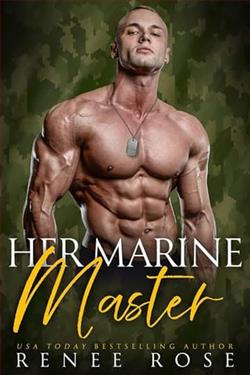Page 13 of So Far Gone
And with that, he took a bite of microwaved turkey pot pie, toasted the other bar patrons—“Happy Thanksgiving, gents!”—and started his life over.
***
Kinnick drove Leah and Asher away from his house in that smelly old car, down a dirt road to a two-lane highway cut between dense stands of trees, past cattle and sheep ranches, as they wound ten miles back up the twisting Hunters Road to the town of Springdale. He narrated as he drove, pointing out neighbors: “Brattons used to run a couple hundred head of Hereford till the old man’s back gave out,” and “That place was a commune for years, but they all eventually moved away.” He explained that Springdale had been an old logging and mill town, a crossroad, a rail stop, and that his grandfather had bought a small homestead ranch up here in the late 1940s, back when there were twice as many people in the town. He slowed and turned onto the two-block Springdale Main Street, which he said had once consisted of a busy lumber railroad siding and a dozen small businesses supporting it. The railway was gone now and only two storefronts were open: a sad tavern, and a sadder little grocery store, whose prices, Rhys said, “Aren’t much better than the convenience store up at the Y.”
Asher and Leah made eye contact, curious about this tour they were getting. At first, their grandfather had barely seemed capable of speech, and now it seemed, a tap had opened, and he couldn’t stop.
At the highway fork, they didn’t turn west toward Loon Lake, the way they’d come with Anna Gaines, but drove south toward the town of Ford, past a sign that pointed to the entrance of the Spokane Tribe of Indians.
Rhys began muttering to himself. “Oh boy. I probably shouldn’t. Or maybe—” He bit his lip. “And maybe they aren’t even...” He slowed the car. “I’m sure they don’t want to—” He eased the car to a crawl, craning his neck to scope out a newer double-wide trailer just off the highway, two cars parked in front.
“Well shit,” he said, “they’re home. I guess now is as good a time as any.” He pulled off the highway into a fenced dirt yard, parking in front of the double-wide, which sat next to a large steel building with a faded sign that read:spokane tribal surplus.There were also homemade signs on the fence that read:midnite mine kills!And:clean up dawn uranium.And:doe lies!
“Okay, kids.” Rhys took a deep breath. “I apologize in advance for any language you are about to hear, but this will be a good lesson for us all. Don’t put things off. And don’t drink wine in the afternoon.”
“Whose house is this?” Leah asked.
“It belongs to my friends Brian and—”
Before he could finish the sentence, a German shepherd came out of the house and began barking, followed by a top-heavy Native American man in gray sweatpants, fuzzy slippers, and an Oakland Raiders sweatshirt, who burst out of the double-wide’s doors and down two steps. “Kinnick, what the actual fu—” But the man caught himself when he saw the children in Kinnick’s car. “What do you think you’re doing?”
Rhys climbed out of the car and showed his hands. “Brian. I’m sorry. I would’ve called first, but I just realized I don’t have a phone.”
“I don’t believe it. You just show up like this?”
The dog continued to bark but stayed on the porch. A woman, alsotop-heavy, came out next. “Okay, Billy,” she said, and the dog went back in the house. The woman was thick and pretty, lighter-skinned than the man, with short, gray, spiky hair. “Rhys, are these your grandchildren?”
“Allegedly. Hello, Joanie. How are you?”
“Fine. Just fine.” There was a swirl of activity then. The men stepped in close and talked quietly to each other through gritted teeth. The woman, Joanie, hustled over and pulled the kids out of the car and brought them into the house, and somehow, had cocoa and maple cookies ready to go before they got out of their shoes and raincoats. It was a warm place, with shag carpet and a big-screen television facing two leather recliners beneath old Native ledger paintings of warriors on horses. The dog fell onto a lumpy bed in front of the TV. Joanie put the kids at a small bar with their cookies and hot chocolate, which were delicious.
“Have more,” Joanie said, and pushed the package of maple cookies their way.
“Do you have an indoor toilet?” Asher asked.
“Of course we do,” Joanie said, “just down the hall.”
They watched out the window as, in the dirt lawn in front of the double-wide, Brian pointed and yelled at Kinnick, who stood sheepishly, hands in his pockets, nodding along.
“What’s he so angry about?” asked Leah.
Joanie looked them over and must have decided they were old enough to hear. Either that or it was just too good a story not to tell.
“Well, see,” she said, “one day we was up to Two Rivers boat launch, drinking wine, me and Brian and Rhys, and out of nowhere, your grandpa gets me alone and tells me that he might be in love with me...” Joanie didn’t stop speaking, but sort of hummed a little laugh. Then, without looking away from the two men, she fell back into the story: “But that wasn’t the worst of it. I would’ve just said ‘O-o-okay,Rhys,’ and chalked it up to the wine and him living all alone like he does. But Brian comes back from taking a piss and your dumb grandfather decides he needs to tell Brian what he just told me.”
“That he loves him?” Asher asked.
This caused Joanie to look away from the window and laugh with her full chest, a sound like someone barking. “He does love Brian! That is true, son. Sure more than he loves me. Them two talking politics is like watching a mating dance.
“But, no, he told Brian that he was taken with me, and that he didn’t plan to do nothing about it, but that such business had caused trouble in his life before, etcetera. He said he was trying this new honesty approach or some such thing, and he didn’t want nothing, it was just something that needed to be said out loud—apparently while we were all drunk on wine at the Two Rivers boat launch!” Joanie laughed again.
“When did this happen?” asked Leah, remembering Rhys saying something about not putting things off.
“Be a year in July.”
“And you haven’t seen him since?”
“Nope. Because your drunk grandfather starts in about how, also, while he’s on the topic, maybe Brian ought to treat me better, pay more attention to me—which is true by the way—but that was a lot for Brian to take in on the same day he hears that your grandfather has taken a liking to his common-law wife, and so Brian tells Rhys that maybe he should mind his own damned business, and them two rise up and nearly come to blows! Like I told your grandfather, I was flattered, but Brian and me, we have a good life together, going to the casino, fighting the Department of Energy, all the work we done blending our families together.” She waved like she was shooing a fly away. “Anyways, I’m too old for a... what do you call it?”








